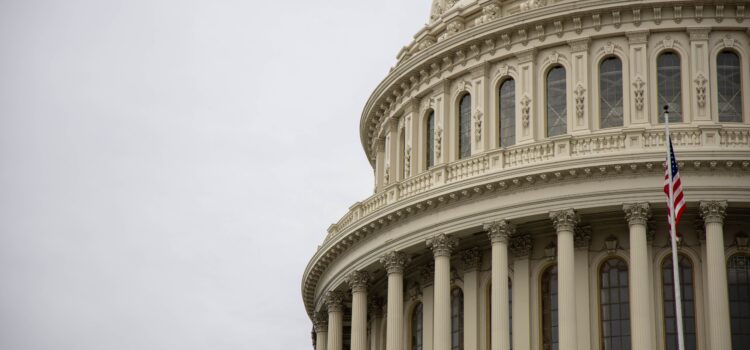

This article is an excerpt from the Shortform summary of "The Federalist Papers" by Alexander Hamilton. Shortform has the world's best summaries of books you should be reading.
Like this article? Sign up for a free trial here .
What are the beliefs of Federalists? How did the Federalist Party beliefs shape the Constitution?
The Federalist Papers are a historical record of the beliefs of federalist. The balance of state and federal interests stem from the Federalist Party beliefs at the time.
Read more about the Federalist Party beliefs that impacted the Constitution.
Federalist Party Beliefs
The Federalist Papers are perhaps our best window into the Federalist Party beliefs minds of the men who drafted the Constitution and founded the United States. By reading The Federalist Papers, we gain important insight into what the Founding Fathers thought about human nature, civil society, and the relationship between government and liberty.
The framers of the Constitution had a pragmatic, if somewhat negative view of human nature. They believed that people were prone to selfishness and ambition, and that power had a universal tendency to corrupt even the most virtuous individuals. People were by their nature flawed; if they had been perfect, there would be no need for a government to restrain their worst impulses.
Accordingly, they wanted to construct a government that took this view of human nature into account. The structure of the new federal government would be based in laws and political institutions, instead of relying upon the virtue and upright conduct of individuals. These laws and political institutions would be designed to channel the natural tendencies to ambition, self-interest, and faction toward ends that would benefit society as a whole.
(Shortform note: The authors of the Constitution and The Federalist Papers seem not to have anticipated the rise of organized political parties. Indeed, the first two parties—the Federalists and the Democratic-Republicans—came into existence almost immediately after ratification. With the arrival of political parties, the main theatre of political competition was not between branches of government. Instead, co-partisans began to cooperate across branches of government to achieve shared party goals, like the Federalist Party beliefs. This was precisely the opposite of what the Framers had intended. Ironically, these original parties were led in large part by the primary authors of The Federalist Papers—Hamilton for the Federalists and Madison for the Democratic-Republicans.)
The Experience of the Greek Confederacies
Unfortunately for Americans living under the Articles of Confederation, the historical evidence showed that confederacies were likely to result in dissolution and chaos. The Federalist Party beliefs had to adapt to the realities of confederacies.
The city-states of ancient Greece often banded together in leagues, usually to protect themselves against foreign threats. Because of their independence, the cities had few interests in common and proved unwilling to come to one another’s defense or contribute funds for the common good. Foreign powers like Macedon, Persia, and Rome exploited these divisions, resulting in conquest, annexation, and the destruction of ancient Greek liberty.
These disastrous results were a direct result of the beliefs of federalists and the weak central structure of the leagues, which delegated too much power to the individual cities and gave the league itself no enforcement mechanisms to bring recalcitrant members to heel. Publius warned that the same fate could befall the United States if the Articles of Confederation weren’t scrapped and replaced with a stronger framework for national government, integrating the Federalist Party beliefs.

———End of Preview———
Like what you just read? Read the rest of the world's best summary of Alexander Hamilton's "The Federalist Papers" at Shortform .
Here's what you'll find in our full The Federalist Papers summary :
- The genius of the founding fathers in how they designed the United States Constitution
- Why it was critical for the United States to form a union rather than stay separated as colonies
- How Alexander Hamilton anticipated social issues that are still relevant today






